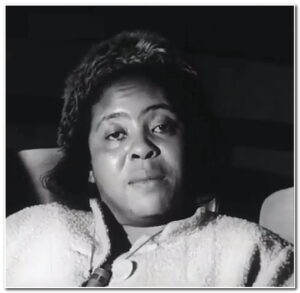Fannie Lou Hamer, born on October 6, 1917, was an extraordinary American civil rights activist and a powerful voice in the fight against racial segregation and injustice. She emerged as one of the most influential figures of the civil rights movement in the 1960s, championing voting rights, economic empowerment, and political representation for African Americans.
Hamer was born and raised in Montgomery County, Mississippi, into a sharecropping family. Her early life was marked by poverty and racial discrimination, but she possessed an unwavering spirit and a determination to challenge the status quo. Despite facing numerous obstacles, including being expelled from school due to her involvement in civil rights activism, Hamer remained steadfast in her commitment to equality and justice.

